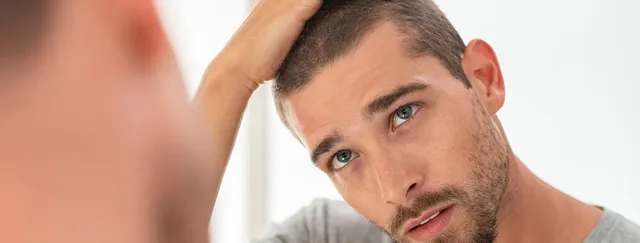How long do hair transplants last?
One of the most often asked questions by potential hair transplant patients is, “How long does a hair transplant last?” While those seeking a remedy to hair loss will be relieved to learn that the effects are generally long-lasting, there are a variety of different circumstances in which this may not be the case. How long do hair transplant treatments last?
Generally, a hair transplant will last for your entire lifetime. They are designed to be permanent and rarely do people need them re doing. You will be able to see the shape of your new and better hairline immediately after your doctor completes your hair transplant. Hair should begin to grow rapidly following your transplant.
One source of dissatisfaction for many patients is hair losing and loss following early growth. Once this initial round of transplanted hair falls out, it should regrow permanently. Hair should be healthy and normal in appearance.
After roughly half a year, the majority of persons report substantial changes in hair growth. After one year, the procedure’s full outcomes are nearly always evident.
Hair transplants in the modern day is safe, natural, and permanent.
Patients are deemed excellent if they have sufficient healthy hair growth on their heads to allow physicians to transplant follicles to the afflicted location. Additionally, you must be able to develop hair on the spot you’ve chosen. This means that individuals with severely damaged scalps may be ineligible for successful transplantation.
Is a hair transplant permanent?
While worries about hair transplant permanence are reasonable, in the majority of situations, your hair transplant will last a lifetime. The follicles will have been relocated from a donor region of your scalp, guaranteeing that they will not only take the transplants more readily, but will also blend in with the rest of your hair in the months after the procedure. Each follicle will generate hair that develops organically in conjunction with the surrounding hairs and behaves similarly to the rest of your hair.
While there is a possibility that people with pattern baldness will experience further hair loss in the future, this is frequently resolved with additional therapy to transplant healthy hairs into regions of new hair loss. However, with proper care, the transplanted hairs will remain strong and healthy and will last a lifetime.
Our surgeons will consider your family history of hair loss and the factors that contributed to your own thinning or loss in order to assess if you are likely to lose hair in the future. This manner, we may anticipate and forecast future operations and create a hairline and density that will integrate seamlessly with them.
These harvested follicles are implanted into balding or hair-loss regions of the scalp. A hair transplant is termed permanent since it is long-lasting. Additionally, it takes an extended period of time to heal and recover.
You can give yourself the greatest chance of making your hair transplant last by consuming supplements after your hair transplant.
Do hair transplants wear off?
Is it irreversible? After your hair follicles are transplanted into regions of losing hair, your skin will need time to recover. Indeed, for the first three months following the surgery, it is typical for part of your hair to come out. However, transplanted hair follicles, like the rest of your hair follicles, have a lifespan.
What is shock loss after hair transplants?
You may have shock loss in the weeks following surgery. Your scalp will have been subjected to trauma during the procedure, and while every precaution is made to minimise this, your scalp may nonetheless shed hair in reaction.
Shock hair loss is often transient, and your hair will resume its regular growth pattern once the cycle resets and begins again. Regardless of the reason of shock loss or the extent of hair loss, the transplants will return the hair to its growing stage and you will notice results within a few months.
Permanent shock loss is uncommon and typically occurs in those whose follicles have already been impacted by the hair loss process. This may be present if you have pattern baldness, but your surgeon will thoroughly evaluate and discuss this with you ahead to your operation. Additionally, they will be available for an initial check-up and follow-up treatment for 12 months following the surgery to monitor the growth process and address any problems.

